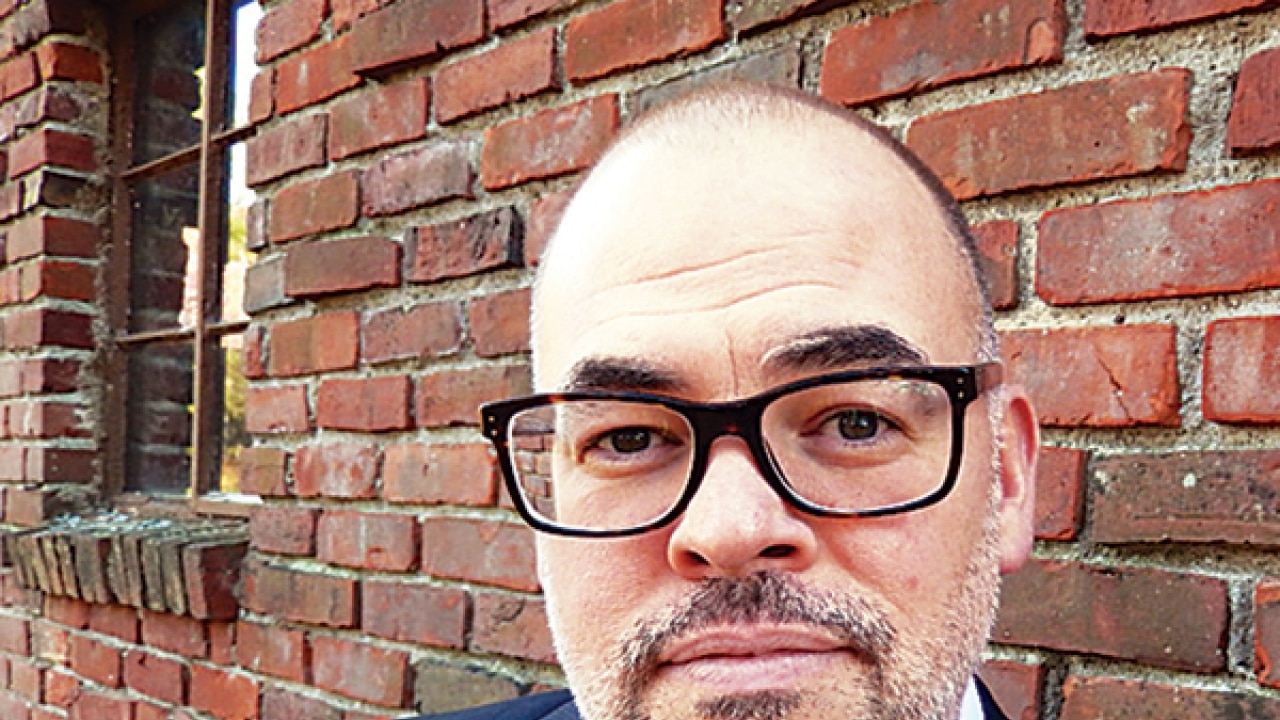
Matthew Quick is one of those few writers whose storytelling walks through a self-created path. Remarkably prolific, one of his novels was also made into an Oscar-winning film. The book, The Silver Linings Playbook, continues to resonate in his introductions in spite of The Good Luck of Right Now, an inspiring epistolary story in which the protagonist writes to actor and activist Richard Gere. And, a few others too.
The story of the moment is his Love May Fail, another fascinating novel with interesting characters such as that of a woman who leaves her cheating husband. During her days in school, she had been taught by an English teacher, who had an amazing impact on many of his students. There is a sister, an agoraphobic mother, all powerful individuals who introduce us to a world in which the protagonist's quest for self-discovery makes her take an unusual decision in life. Edited excerpts:
Love May Fail's back cover states that Sony Pictures are developing it into a film. How did this plan originate, and what is its current status now?
They bought the adaptation rights 18 months ago. It's in development. I can't talk much about it now, but there are wonderful rumours. Fingers crossed.
One distinctive quality of your new novel is the number of interesting characters, several of them capable of telling their stories in standalone narratives. How did you discover these people?
As a former teacher (and as a former student too), I wanted to tell a teacher-student reconnection story that takes place decades after everyone has left the classroom. I stopped teaching in 2004, but some of my former students still contact me from time to time. It's rich ground for conflict because roles that were so clearly defined in the classroom don't necessarily work in the real world. I took my teaching job very seriously. I still believe that teachers can change the world. Maybe that's why we treat them so terribly here in the US. Maybe we're afraid that they actually will change the world if we ever dared to support them more.
Love May Fail is a structurally complex novel. But you have written it in a deliciously easy-to-read style that the average reader can connect with. Did this style come to you naturally?
Thank you! I always shoot for deceptively simple. It's hard to do and you always run the risk of being dismissed by the snobs as something lighter than literary. But it's what I love to read. I had a lot of baggage when I was younger. I used to think I had to write very serious complex literary stories if I was going to be a real writer. Then I realised that everyone's definition of a real writer is different and largely based on what his or her social herd thinks. I've never really been a joiner and I think that independent streak helped me find my style. But, yes, finding your voice is never easy. It can take decades.
And, when did you come across that moment that made you confident about your ability as a writer?
I'm still waiting for that moment. Ha! In the middle of my MFA grad school experience I realised that no one can teach you how to be a fiction writer. You can learn technique, style, structure, grammar, trends, history, and various other things from other writers, but there is no teacher who can teach you how to be yourself. No one can give you your voice. You have to cough it up from deep within, which isn't fun or pretty. I do that best alone. I'd say I'm most confident when I am alone. Solitude is very important to me.
There are times when writers at a young age have a goal in mind. 'Yes, I want to be like him,' they think. Did that ever happen to you?
Sure. I wanted to write like Hemingway and Camus when I was a teenager. I liked the accessibility of their work. Later it was Vonnegut. But at some point every artist realises that the best person to be is always yourself.
The Silver Linings Playbook was highly acclaimed, and also made into a film that won an Oscar. Do you believe that journalists should introduce you as who you are, and not simply as the author of that one book?
I try not to think about that too much. Being known for something is definitely better than being known for nothing, at least career-wise. It's important to do the work that is in front of you. I try to keep writing and business separate. When I am in my office writing fiction I become my next first-person protagonist, not the author of The Silver Linings Playbook.
What is the status of The Good Luck of Right Now, the film?
DreamWorks is developing it. We were close to a green light in 2014, but there were last minute creative differences.
Do you have any/some favourite filmmakers who, you feel, can create a brilliant film based on one of your books?
Would have loved to see a Hal Ashby adaptation. Too late for that, unfortunately. Living directors: Dayton and Faris, Spike Jonze, Michel Gondry, to name a few. Would be interesting to run one of my stories through the mind of Wes Anderson. There are many talented filmmakers out there. Pretty lucky already to see a David O. Russell adaptation.
Finally, are you planning any new book if not actually writing it?
Every Exquisite Thing will be published in 2016 by Little, Brown. I'm writing an adult novel for HarperCollins right now. And I'm working on an original screenplay for The Weinstein Company.